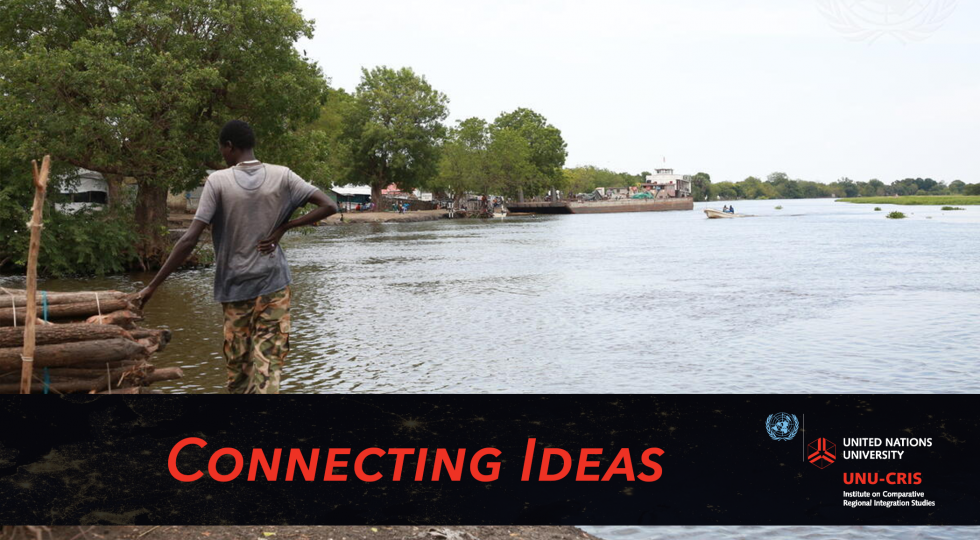Water: Different values, shared futures


Nidhi Nagabhatla
Research Fellow, UNU-CRIS
22 March 2021 | #21.07 | The views expressed in this post are those of the author and may not reflect those of UNU-CRIS.
Colleagues from UNU-FLORES, UNU-IAS and UNU-INWEH have contributed to the quotes featured in this article.
Under the theme of valuing water, this year’s World Water Day aims to understand how water is valued across contexts and users. Essentially, it establishes that water means different things to different people.
Water is a valuable asset to ensuring food and energy needs. As the discourse on sustainability continues to evolve with a mix of science and socio-economics targets, the focus on culture and value proposals within water management planning and policies can allow researchers and decision-makers to study, redefine and embrace ‘multiple knowledge systems’ operating in diverse contexts.

The concepts of valuing water could help identify water's worth in often competing uses and users’ scenarios. The changing paradigms in the value systems of freshwater resources – emerging frameworks and guiding principles including key developments such as Bellagio Principles and the Valuing Water Initiative (VWI), were launched to boost the implementation of the agenda agreed during the High-Level Panel on Water (HLPW) in 2016. A call for a comprehensive, inclusive, and collaborative form of leadership to develop, manage, and improve water provisioning services for all regions, states and communities, is also key to implementing water-related Sustainable Development Goals (SDGs).

World Water Day 2021 themed on ‘Valuing Water’ aligns with the messaging of ‘Bellagio's Principles’ i.e. to boost the narrative that “water is not just a resource but an element with multiple values and meanings usually expressed in spiritual and cultural spaces.” The context of ‘water’ in languages, customary norms, and indigenous knowledge systems provides profound perceptions, relevant for states and stakeholders to drive a collective vision for water-secure futures for all.

The outcome of the HLPW - the "Making Every Drop Count" document released in March 2018—necessitated the collective betterment in understanding, valuing, and managing water to steer systemic change and trigger the deconstruction of how water is valued in practice, policy, finance, and behaviour. Practical applications of valuing water principles across the above-stated dimensions, contexts, sectors, organizations, institution and agencies need collaborative initiatives around four key aspects:
-
Shaping projects and programs that can be scaled-up to demonstrate interlinked thinking.
-
Developing leadership coalitions of champions committed to learning and applying the valuing water principle.
-
Creating learning platforms to provide information and knowledge inputs toward supporting learnings and best practices to value water.
-
Steering action through inspiration, catalysing change via active communication outreach, influence, and cooperation.

The holistic approach of ‘valuing water’ can allow for a more equitable exchange of power and, in turn, access to financial and political resources for better and equitable management of water resources. An optimal balance in economic growth and sustainability targets is a rolling challenge that can only be accomplished with a mix of smart and innovative strategies, and integrating multiple values and knowledge systems within operational frameworks of SDGs.

Let us acknowledge that, recognizing and considering multiple values of water could serve a strategy to aggregate numerous benefits provided by water in economic, social, and ecological settings –across national and regional levels and comprising social and cultural establishment settings.

